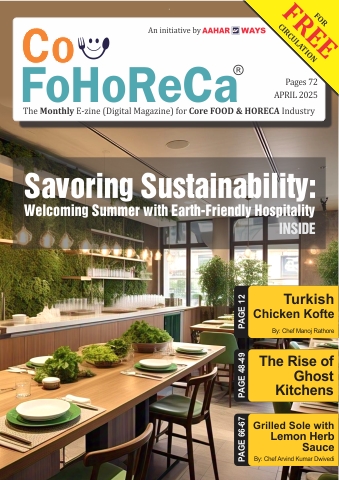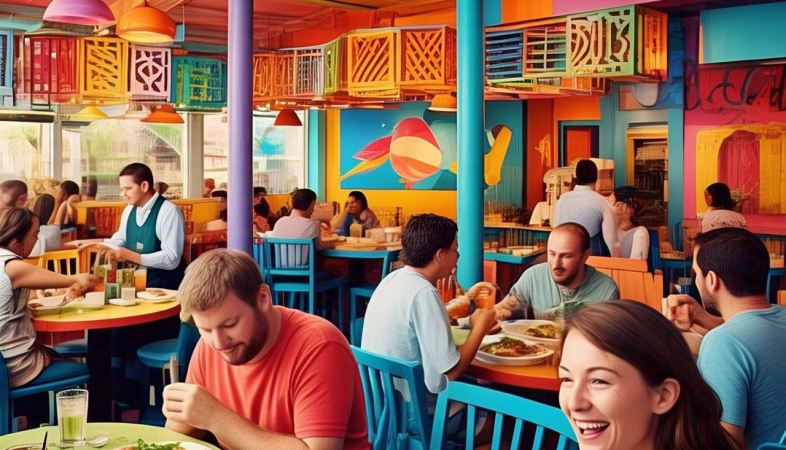How Hotels Can Integrate Green Spaces and Urban Gardens into Design
The integration of green spaces not only benefits the environment but also enhances the guest experience, providing a peaceful oasis amid the urban hustle.
As sustainability becomes a key focus in the hospitality
industry, hotels are looking for innovative ways to integrate green spaces and
urban gardens into their designs. This shift is driven by a growing desire for
guests to connect with nature, even in bustling city environments. The
integration of green spaces not only benefits the environment but also enhances
the guest experience, providing a peaceful oasis amid the urban hustle. By
incorporating greenery into their designs, hotels can attract eco-conscious
travelers, improve the overall atmosphere, and contribute to environmental
conservation.
One of the most effective ways hotels can integrate green spaces is by incorporating rooftop gardens or terraces. These elevated green spaces offer guests a unique experience, providing an escape from the noise and concrete of the city. Rooftop gardens can serve as relaxing retreats where guests can unwind, enjoy a meal, or even engage in wellness activities such as yoga or meditation. These areas can be designed with comfortable seating, lush plants, and panoramic views of the city skyline, offering both tranquility and a visual connection to nature. Moreover, rooftop gardens can also be used to grow herbs, vegetables, and fruits, which can be incorporated into the hotel’s restaurant menus, offering fresh, local produce to guests.
In addition to rooftops, hotels can integrate green spaces into their lobbies, hallways, and outdoor areas. Indoor plants and greenery have been proven to improve air quality and create a calming atmosphere. By incorporating plants into hotel interiors, such as through vertical gardens, hanging plants, or indoor potted arrangements, hotels can create an inviting and refreshing environment. Guests are drawn to spaces that feel alive and vibrant, and greenery provides an immediate sense of relaxation and comfort. For hotels in busy city centers, the presence of lush plants and flowers can serve as a calming contrast to the surrounding concrete landscape, helping guests feel more grounded and connected to nature.
Urban gardens are also an excellent way to incorporate green spaces into hotels, especially those located in densely populated areas where outdoor space is limited. These gardens can take many forms, from small herb gardens in courtyards to larger community gardens that guests can participate in. Urban gardens offer a unique opportunity for guests to engage with nature in a hands-on way, whether through gardening activities, planting workshops, or simply enjoying the beauty of a well-maintained green space. These gardens can also help hotels reduce their environmental footprint by growing their own food, reducing the need for transportation and packaging associated with sourcing ingredients from outside suppliers.
Sustainability is a key aspect of integrating green spaces into hotel design. By implementing energy-efficient practices, such as rainwater harvesting, composting, and using native plants that require less water and maintenance, hotels can reduce their environmental impact. Green spaces can also be designed with eco-friendly materials and technologies, such as solar-powered lighting, energy-efficient irrigation systems, and sustainable furniture. By taking these steps, hotels can demonstrate their commitment to sustainability while also providing a more enjoyable and environmentally friendly experience for their guests.
Beyond the environmental benefits, integrating green spaces into hotel design can also improve the mental and physical well-being of guests. Studies have shown that exposure to nature has a positive effect on mental health, reducing stress, anxiety, and promoting relaxation. For guests who may be traveling for business or leisure, having access to green spaces within the hotel provides an opportunity to recharge, both mentally and physically. Whether it’s a quiet garden corner to read a book, a peaceful park for a morning walk, or a vibrant outdoor space for socializing, green spaces provide the perfect environment for guests to unwind and rejuvenate.
Another way hotels can integrate green spaces is by promoting local biodiversity. By planting native species and working with local horticulturists, hotels can create ecosystems that support local wildlife, such as birds, bees, and butterflies. These eco-friendly initiatives not only contribute to biodiversity but also create a more immersive and enriching experience for guests who value the connection between nature and local culture. Hotels can also partner with local environmental organizations to raise awareness about conservation efforts, providing guests with opportunities to learn about sustainability and environmental preservation.
The integration of green spaces into hotel design can also be a valuable marketing tool. As more travelers seek eco-friendly and sustainable experiences, hotels that prioritize green spaces will stand out in a crowded market. Green design elements can be highlighted in marketing materials and on hotel websites, appealing to guests who are passionate about sustainability and nature. By creating an environmentally conscious hotel that integrates green spaces, hotels can strengthen their brand identity and build a loyal customer base.
Integrating green spaces and urban gardens into hotel design offers numerous benefits for both guests and the environment. From rooftop gardens and indoor plants to urban gardens and sustainability initiatives, green spaces create a more inviting and relaxing atmosphere while promoting environmental conservation. As hotels continue to prioritize sustainability and guest well-being, incorporating green spaces into their designs will become an essential aspect of creating memorable and meaningful experiences. By blending nature with modern design, hotels can provide guests with a unique and rejuvenating stay while also contributing to the health of the planet.
.png)




























